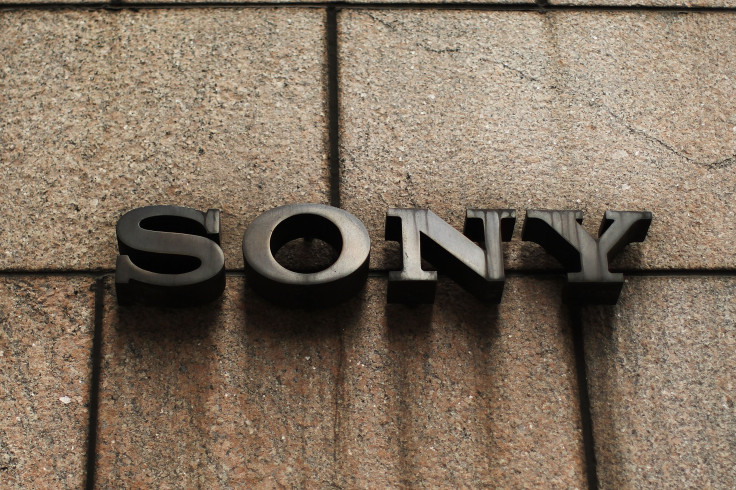Can Sony Sue The Media? Hacking Scandal Brings Legal Threat With Dull Teeth, First Amendment Experts Say

The sprawling train wreck that is the Sony Pictures Entertainment hacking scandal took a turn for the dramatic over the weekend when a lawyer for the studio threatened to hold news organizations responsible for any damages arising from the dissemination of leaked information. In a strongly worded letter to major news outlets (including IBT Media), David Boies, a legal heavyweight who has represented big-name clients from George Steinbrenner to Al Gore, referred to the leaked documents as “stolen information,” confidential data protected by attorney-client privilege.
“We are writing to ensure that you are aware that SPE does not consent to your possession, review, copying, dissemination, publication, uploading, downloading, or making use of the Stolen Information, and to request your cooperation in destroying the Stolen Information,” Boies wrote.
It’s the latest attempt at damage control by a Hollywood studio that has endured a barrage of almost-daily embarrassments since an anonymous group called Guardians of Peace began dumping troves of company data on file-sharing websites last month, but Boies’ legal threat isn’t likely to put the genie back in the bottle -- or stop it from spreading. Although such saber-rattling is a common tactic for companies in crisis-management mode, media law experts say Sony doesn’t have much of a legal leg to stand on, stolen information or no.
“I’m stretching to think of one, to be honest,” said Andy Sellars, a First Amendment fellow at Harvard University’s Berkman Center for Internet and Society. “To what extent you can find one, I think the First Amendment pretty cleanly forecloses that possibility.”
Sellars points out that some of the most important scoops in journalism history -- from the Pentagon Papers in 1971 to the National Security Agency’s surveillance program leaked by Edward Snowden last year -- have relied on pilfered information, and attempts to hold journalists accountable for acting as messengers have rarely held up to legal scrutiny.
In fact, the Supreme Court weighed in on this very issue 13 years ago in “Bartnicki v. Vopper,” which concerned a leaked cell phone conversation between teachers’ union representatives that was broadcast on a radio station. The representatives argued that because the recording was obtained illegally, the station violated wiretapping laws by broadcasting it. The court disagreed and ultimately struck down that restriction as a violation of the First Amendment.
Sandy Davidson, a professor of communications law at the Missouri School of Journalism, said the case helped solidify the rights of journalists to share information without regard to how that information was obtained by sources -- so long as news outlets themselves do not coerce sources into behaving illegally.
“As long as your hands are clean as a news organization, your obligation is to determine if what you have is of legitimate public concern,” Davidson said.
But what exactly is legitimate public concern? News outlets may be divided on that question, but unfortunately for Sony, the law allows for plenty of answers. “Newsworthiness is given a very broad definition,” Davidson said. “It’s not just the world’s latest breaking news. It’s what people have an interest in -- a 12-year-old giving birth, the escape of a wild animal. You get into all sorts of things.”
That means those embarrassing emails in which the producer Scott Rudin called Angelina Jolie a “minimally talented spoiled brat” could be deemed newsworthy, if only because it was uttered by someone in the public eye. U.S. law offers little shield for the privacy rights of public figures.
This doesn’t mean the private data of celebrities is a free-for-all. Publishing personally identifiable information -- Social Security numbers, for instance -- would almost certainly land a news organization in hot water. The salaries of Sony executives that were posted by some journalists are more of a gray area, as news outlets could make the argument that the public has a legitimate interest in how Hollywood does business.
Beyond that, Davidson said, journalists sometimes have to rely on their gut. “The law allows journalists to go further than I would hope their ethics would in many circumstances,” she said. “Can you do it legally? Yes. The next question is, Should you?”
It’s a question many in the press are asking as the Sony hackers continue to dump ever more humiliating information, promising not to let up until the studio agrees to withdraw the forthcoming comedy “The Interview,” about an assassination attempt on North Korea’s Kim Jong Un. Ironically, the hackers’ attempt to quell Sony’s freedom of speech has forced the media to question the limits of their own -- especially with Hollywood types like Aaron Sorkin berating a “morally treasonous” news industry for doing the hackers’ bidding.
Sellars said he’s happy to see Hollywood and the media hashing out the ethical questions, as long as the law stays out of their way. “The law’s approach should be to let journalists have this discussion, and let them come to their own conclusions here,” he said. “It should respect the integrity and autonomy of the press -- and not really step in as long as the information is of public concern.”
Christopher Zara is a senior writer who covers media and culture. Got a news tip? Email me here. Follow me on Twitter @christopherzara.
© Copyright IBTimes 2024. All rights reserved.












